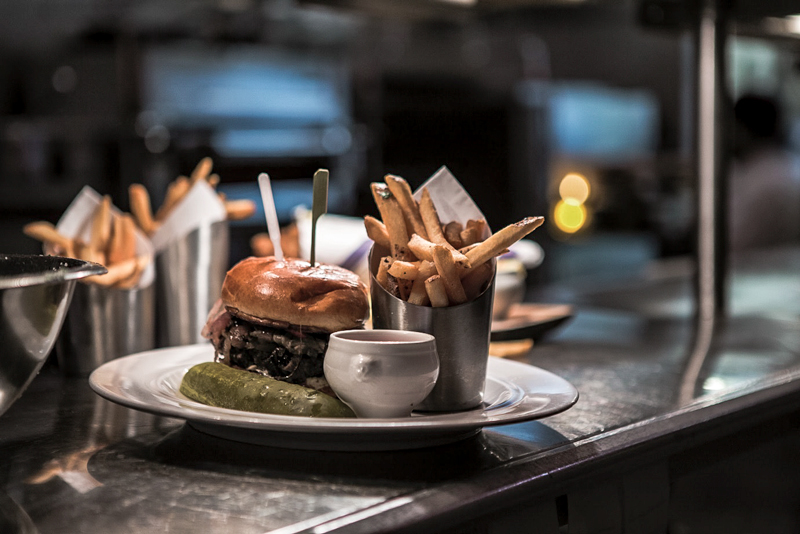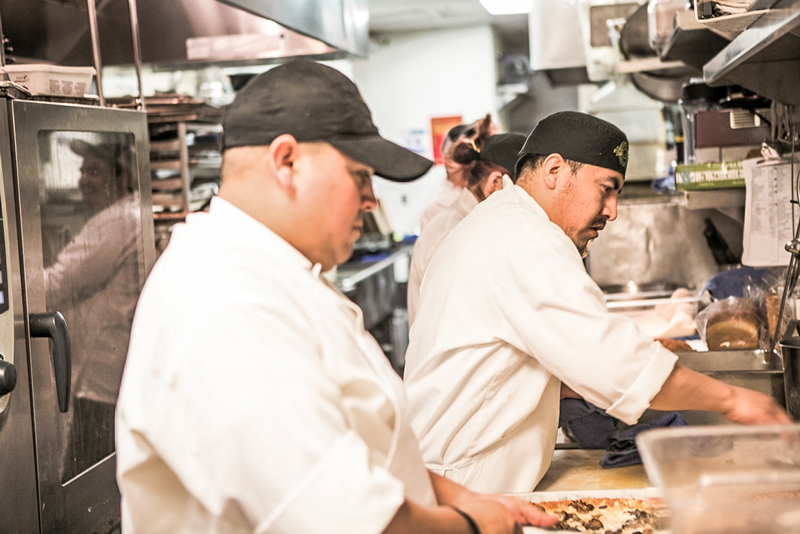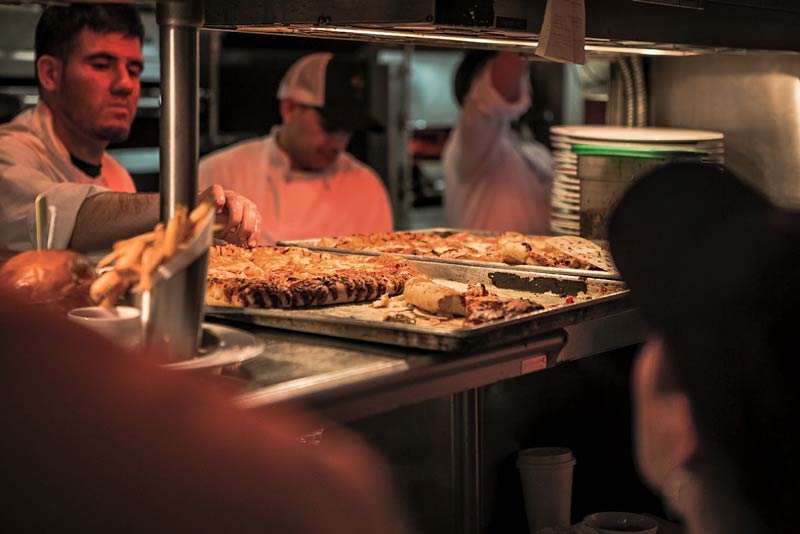Almost 20 years ago, in 2004 a small hot dog stand opened in the center of Madison Square Park. Barely a decade later, Time Magazine named its owner, Danny Meyer, one of the 100 most successful people in the world. Shake Shack, the burger-and-fries chain that grew out of the hot dog stand, now threatens even giants like McDonald’s and Burger King.
Shake Shack a success story not without controversy
The secret to Shake Shack’s success lies, for one, in a fast casual concept that combines fresh, healthy-ish products with quick service. For another, Meyer’s solved a once-impossible equation: his QSR burger joints mix fast food with a feel-good aesthetic and garnished with a clear conscience.

Image: Rational
Even as the restaurant chain expands throughout the world, it manages to retain company policies that are considered progressive overall – although not all of them have met with overwhelming enthusiasm.
Meyer has been criticized in the past for trying to do away with tipping, and for giving employees Apple Watches that would prompt them to serve more quickly. But even a guy widely considered a fast-food revolutionary can’t escape one of the biggest challenges facing the industry: good people are getting harder and harder to find.
With a 4-day week against the shortage of skilled workers
The restaurant industry is faced with an immense personnel shortage, and it’s no small challenge – employer branding is becoming a must, and so is finding ways of keeping good employees once they’re on board. Shake Shack is responding to the restaurant personnel shortage by addressing work-life balance: the QSR concept is considering moving to a four-day work week.
Personnel shortage is a question with no easy answers
The lack of qualified personnel is a global issue affecting every segment of the restaurant industry worldwide.
United States
Whilst labor recruitment has been a very difficult challenge the industry has to face in the last years, this situation has clearly come to a head. According to the State of the Restaurant Industry 2022 Report by the National Restaurant Association roughly 50% of all operators in the fullservice, fast-casual and quickservice restaurants expect, that recruiting & retaining staff will be their major challenge in 2022.
Germany
A Tripadvisor survey of German hoteliers and restaurateurs yielded similar results: already in 2018, 70% of them called personnel shortages the most urgent issue they faced. At htis time, around 5,000 positions have been unfilled in German chain restaurants alone. According to the Federal Statistical Office, the number of employees in the German restaurant industry in 2021 fell by 23.4 percent, or almost a quarter, compared with the pre-crisis year of 2019.
United Kingdom
According to the Office for National Statistics, there were 164,000 hospitality vacancies between January and March 2022 in UK. A further UK study concluded that 64% of the restaurants surveyed indicated that they weren’t getting enough applicants with the necessary skills. In other words, the problem isn’t just a shortage of people, it’s also a shortage of training and abilities.

Image: Rational
Increasing the work-life balance as a key to the shortage of skilled workers
Both of these problems aren’t exactly helped by the hospitality industry’s reputation – stress and long, irregular restaurant work schedules are practically seen as laws of nature. Over time, they wear people down physically and mentally, and also take a toll on employees’ social lives. Maintaining work-life balance is tricky when scheduling models and vacation time are determined on customers’ wants and needs alone. As difficult as it’s becoming to fill new restaurant industry jobs and recruit new trainees, restaurants need to act fast – they need to focus their employer branding on emphasizing their existing perks and creating new ones. Restaurant work schedules might be one area worth exploring new approaches in. Four-day work weeks could potentially right this staffing ship before it sinks.

Image: Rational
Four-day week: Happier employees, happier customers
Four-day weeks might be a big opportunity for the industry to polish its reputation as a high-stress one. Even well-paid, secure jobs with lots of appreciation are only marginally attractive if they mean the end of one’s personal life. Compressing employees’ schedules to a four-day week creates space for more work-life balance, which means happier staff. Many companies fail to see how this will pay off for them, because it doesn’t have an immediate effect on their bottom line. But restaurateurs who want to find and keep employees by re-examining their scheduling models will still sense the difference.
Happy, relaxed employees are more motivated, which definitely benefits customers and the company as a whole. It creates a feel-good atmosphere that keeps customers coming back for more, which translates to higher revenues.

Image: Rational
Companies that aren’t quite ready to make the (not insignificant) leap to a four-day work week still have other options to explore, though. Even “smaller” changes to scheduling models can have a positive effect. Part-time help, annualized work-hours accounts, staggered scheduling, or simply making employees part of the schedule planning process can all reduce workplace stress.
With its new locations in glitzy Las Vegas, Shake Shack is following in the footsteps of the Michelin-starred Maaemo in Norway, the 21212 in Edinburgh and the Aloha hospitality chains in Alabama. All of them are reducing working hours in an effort to find and keep employees. It’s a huge step, but a necessary one given the shrinking number of trainees and the growing personnel shortage. When it comes to scheduling models, restaurateurs who can think outside the box a little will find that four-day work weeks benefit them as much as they do staff.

















Pingback: The skilled worker shortage and what you can do about it | KTCHNrebel